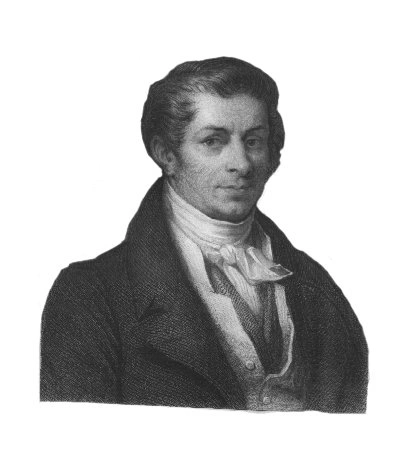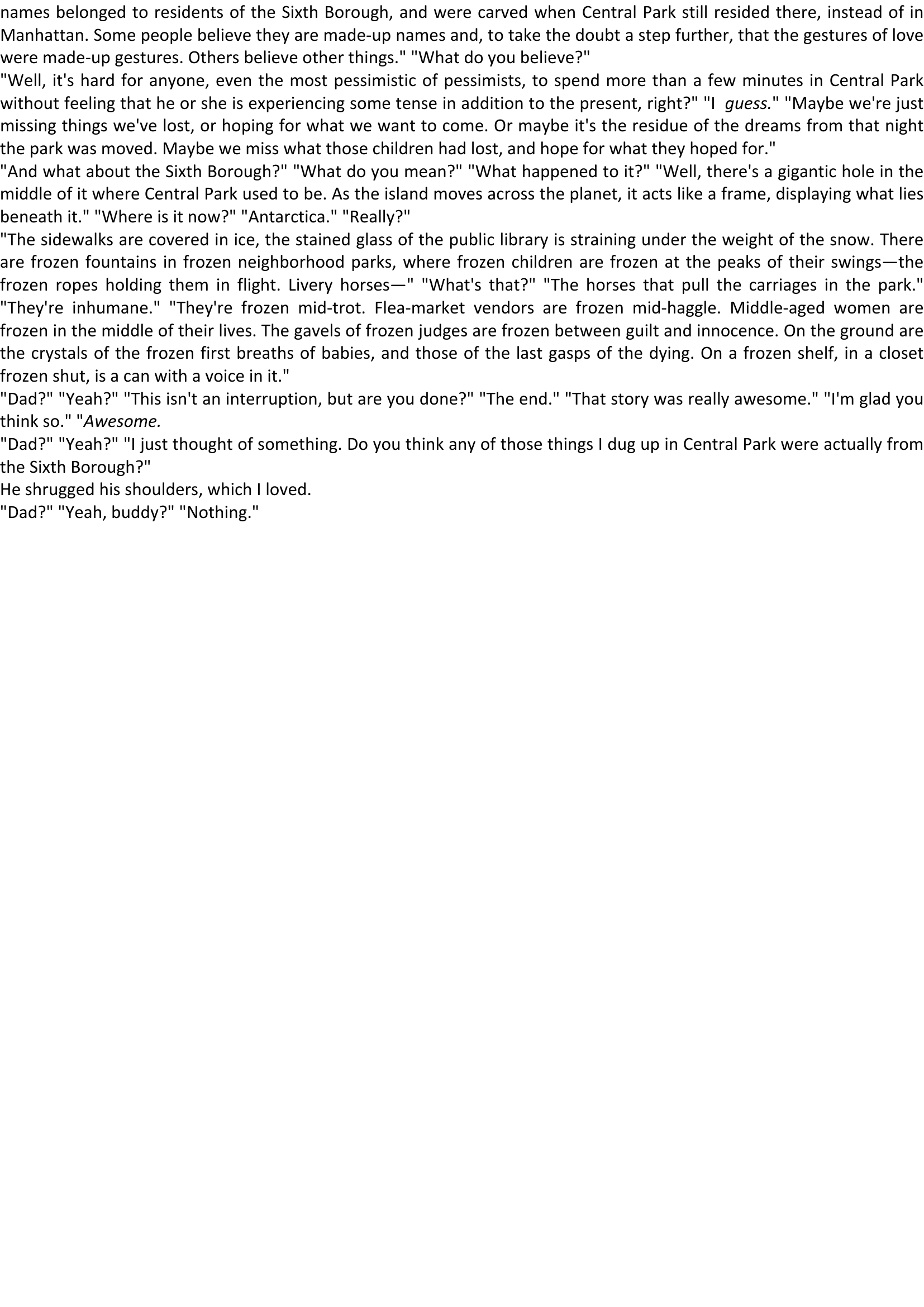"'Well, what can you say about that?
Publié le 06/01/2014

Extrait du document


«
names
belonged toresidents ofthe Sixth Borough, andwere carved whenCentral Parkstillresided there,instead ofin
Manhattan.
Somepeople believe theyaremade-up namesand,totake thedoubt astep further, thatthegestures oflove
were made-up gestures.
Othersbelieve otherthings." "Whatdoyou believe?"
"Well, it'shard foranyone, eventhemost pessimistic ofpessimists, tospend morethanafew minutes inCentral Park
without feelingthatheorshe isexperiencing sometense inaddition tothe present, right?""I guess.
"
"Maybe we'rejust
missing thingswe'velost,orhoping forwhat wewant tocome.
Ormaybe it'sthe residue ofthe dreams fromthatnight
the park wasmoved.
Maybewemiss what those children hadlost, andhope forwhat theyhoped for."
"And what about theSixth Borough?" "Whatdoyou mean?" "Whathappened toit?" "Well, there's agigantic holeinthe
middle ofitwhere Central Parkused tobe.
Asthe island moves acrosstheplanet, itacts likeaframe, displaying whatlies
beneath it.""Where isitnow?" "Antarctica." "Really?"
"The sidewalks arecovered inice, thestained glassofthe public library isstraining undertheweight ofthe snow.
There
are frozen fountains infrozen neighborhood parks,where frozen children arefrozen atthe peaks oftheir swings—the
frozen ropesholding theminflight.
Livery horses—" "What'sthat?""Thehorses thatpullthecarriages inthe park."
"They're inhumane." "They'refrozenmid-trot.
Flea-market vendorsarefrozen mid-haggle.
Middle-aged womenare
frozen inthe middle oftheir lives.
Thegavels offrozen judges arefrozen between guiltandinnocence.
Onthe ground are
the crystals ofthe frozen firstbreaths ofbabies, andthose ofthe last gasps ofthe dying.
Onafrozen shelf,inacloset
frozen shut,isacan with avoice init."
"Dad?" "Yeah?" "Thisisn'taninterruption, butareyou done?" "Theend." "That storywasreally awesome." "I'mglad you
think so."" Awesome.
"Dad?"
"Yeah?" "Ijust thought ofsomething.
Doyou think anyofthose things Idug upinCentral Parkwere actually from
the Sixth Borough?"
He shrugged hisshoulders, whichIloved.
"Dad?" "Yeah,buddy?" "Nothing.".
»
↓↓↓ APERÇU DU DOCUMENT ↓↓↓
Liens utiles
- WHY I'M NOT WHERE YOU ARE 5/21/63 Your mother and I never talk about the past, that's a rule.
- Analyse de l'article (1997) - Can we believe what we do not understand ? de François Recanati, philosophe du langage
- MYTHS AND HEROES I'm going to talk you about the notion Myth and heros.
- essaie d'anglais how can you make your trip unforgatable
- What is a dream for you ? (Celon toi qu'est ce qu'un rêve ?)


